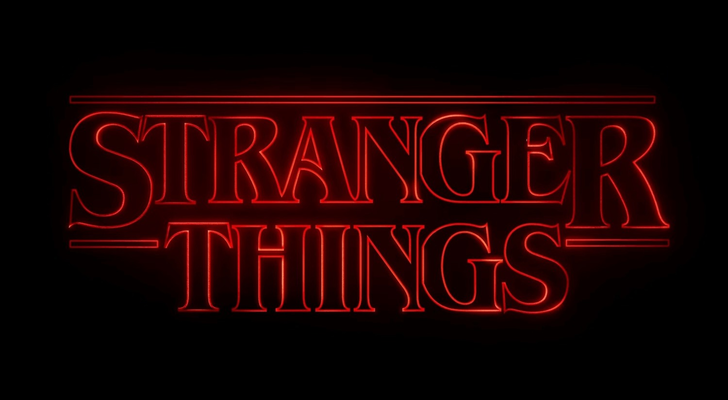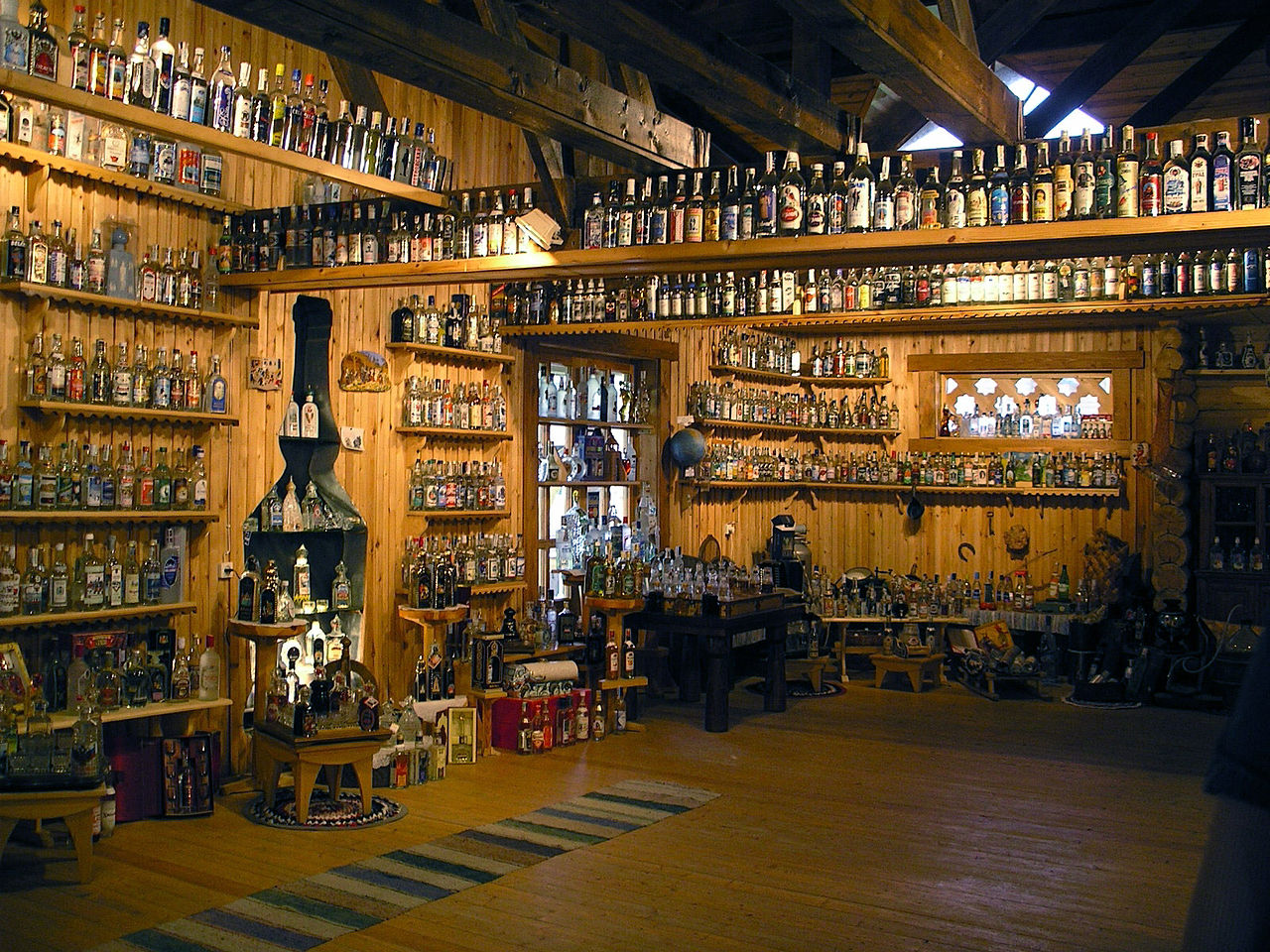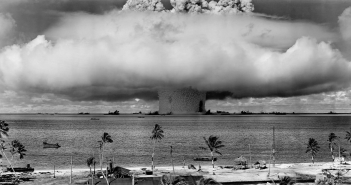In response to COVID-19: how are we to explain people drawing starkly differing conclusions from the same data? To understand this requires a search for context and motivation.
In the second series of the Duffer Brothers Stranger Things, set not uncoincidentally in 1984, there is a critical scene in which the story reaches its conclusion. Murray Bauman, the experienced investigator and sceptic is confronted by Nancy and Jonathan, two of the series’ teenage characters. They present him with conclusive proof of events and happenings, apparently shattering all the certainties he had operated with until that point.
Pouring a large measure of vodka to steady himself, Murray contemplates what he has just heard before explaining to Nancy: “I believe you, but that’s not the problem… you need them to believe you… your priests, your postman, your teachers, the world at large. They won’t believe any of this.” He then clasps his drink close to his chest as if it’s a lifeline.
“You heard the tape,” Nancy insists, clearly frustrated.
“That doesn’t matter”, snaps back Bauman as he waves the glass in the air. People want to be comfortable, and this truth is uncomfortable. He takes another gulp of Vodka and grimaces. But it gives him an idea.
“The story,” he says. “We moderate it, just like this drink here, we water down the vodka … We make it more tolerable.”

The events that have unfolded since March 2020, when the pandemic began in Europe and the U.S., have been extraordinary by any standards.
After over seventy years of peace in the West, during which wars were fought on foreign lands, and apart from the occasional lurch to the left or right there has been political stability, democratic norms, a generally fair justice system and continuous growth in prosperity and education.
Moreover, infectious diseases have been all but conquered with new drugs and treatments. Combined with improvements in public health and nutrition we have seen life expectancy grow year on year in what appears a steady pattern. We have grown accustomed to continuous improvement in the standard of living and security. After seventy years of improvement, we have come to expect this to continue.
After such a prolonged period of peace even the idea of warfare – or it not being safe to walk the streets – is almost beyond our comprehension. Never before has humanity in the West been so removed from the terrors of war, the tyranny of oppressive regimes and the ravages of natural disasters or famine.
We get up each day expecting it to be exactly like the last and for tomorrow to be the same. We cannot contemplate a world that is not exactly like that of today.
Yes, we will have technological changes and workplaces will change, but fundamentally we expect everything to remain the same. Footballers will be paid too much money; screen stars will fall in and out of love with each other; war will break out in some far-flung land and a natural disaster will occur somewhere only to be forgotten and replaced in our consciousness by another somewhere else. Meanwhile, what really concerns us is reaching the gym on time after work, getting the kids to school and catching up on the latest Netflix mini-series.
So, what happened when we woke up one morning to a potentially fatal virus that was not happening on the other side of the world? By early March we had watched with indifference what was happening in China, but now it was here in our community.
Cases, first slowly but then steadily, began rising until on the March 11th 2020 we had our first death. Now it was for real; now for the first time in seventy years there was an immediate threat to our health and even our way of life.
Most conspiracy theories we hear are untrue, but China may be on the brink of another dystopian Cultural Revolution according to one long-term Western resident.https://t.co/oRbwdERJz1@broadsheet_ie @ConorBlenner @liamherrick @amandaknox#China #ChinaMustExplain #chinaracism
— CassandraVoices (@VoicesCassandra) April 19, 2020
We approached the pandemic within the paradigm of our world of seventy years of increasing prosperity and health. We believed we were invincible, that our medical community would protect us and that all lives were saveable.
For any illness there must be a drug. If we don’t have it today, we will have it tomorrow. We just need sufficient money and political will and it will be discovered. So, we laid down the challenge to the pharmaceutical industry to produce a vaccine, and all we needed to do was give them enough time to develop it, locking down hard until then.
In so doing, we revealed an aversion to risk and a failure to critically analyse the extreme, and erroneous, warnings on fatalities that were issued by politicians and scientists; strangely our media and politicians accepted the doomsayers and ignored optimistic assessments.
The WHO definition of health, as not just the absence of disease, but the physical, mental and social wellbeing of the individual, was ditched. We would get back to that once we found the vaccine and the virus was eliminated. The pharma industry took up the challenge and we sat at home watching Netflix until they told us they were ready.
Alternative approaches that involved natural immunity, and isolating the vulnerable as the Great Barrington Declaration advised, or applying early treatment with a range of therapeutic drugs were dismissed in a concerted attack by public health officials, doctors, universities, politicians, the media and in particular social media.
There was to be one response and no challenge would be allowed. Civil rights to freedom of movement and to bodily integrity were trampled on with barely a whimper in the mainstream media.
Barrister and author @AliceHarrisonBL locates the danger of seepage of emergency powers into ordinary usage, using the example of Special Criminal Court.https://t.co/yplcbWP1Gg@broadsheet_ie @ICCLtweet @liamherrick @NiAolainF @RonanMcCrea @ConorBlenner @MichaelSmithIrl
— CassandraVoices (@VoicesCassandra) April 1, 2020
Emergency powers not contemplated since World War II were ushered through by the government without so much as a peep from the opposition or the media. Lockdowns were for the greater good; while the fear and panic that had been sowed ensured almost complete compliance and a demonisation of dissenting voices.
Compelling stories from reliable sources tell us of the more than reasonable possibility of the virus originating in the lab in Wuhan, but we don’t want to know. Valid alternative early-stage treatments, such as Ivermectin, shown to work in other parts of the world are not merely dismissed, but actively smeared.
Early stage VAERS data on vaccine safety, particularly in young males, is ignored based on thresholds that would have previously stopped approval of a vaccine. The fact that the vaccines have not passed long term safety trials is conveniently ignored.
Questions about how wide a spectrum of immunity is covered and the length of time immunity lasts is also overlooked. Boosters are unquestioningly accepted and used off-label, although no research exists on the possible impact to both short and long term health, and overall immunity. Public health concerns about the impacts of lockdown on society and other illnesses are forgotten. There is only one train leaving town and you are either in the vaccine carriage, or you are on your own.
So why did all this happen; why have we thrown away hard won civil rights; why have we allowed ourselves to be coerced into taking drugs, without what would normally be considered informed consent?
Why aren’t we desperately trying to investigate the origins of the disease? Why have we dismissed any and all alternative treatments? Why was the Swedish approach derided, and now treated as if it did not happen?
I guess it’s a case of too much, too soon. We craved the comfort of our old world so much that we accepted without question the solution offered; we were told this was simply “following the science”, as if “the science” was settled.
Once embarked on that path there could be no turning back. There could be no dissenting voices. There could be no alternative science. Voices straying from the perordained plan must be crushed at whatever cost.
So here we are now nineteen months later and it still not politically correct to say that perhaps we got it wrong. Most people are so desperate to return to our safe world, that to believe that, would be to recognise that we have been misled and badly informed throughout that time.
Cork-based GP Dr Eoghan Deasy argues that the harms of ongoing and future mandated restrictions including vaccine passports will outweigh any benefits to Irish societyhttps://t.co/DTpLTkflZ8@broadsheet_ie @BowesChay @indepdubnrth @PD03662439 @BillyRalph
Images @danieleidiniph1— CassandraVoices (@VoicesCassandra) July 4, 2021
It would mean that doctors, much of the scientific community, public health officials, universities and the media have been participants or active orchestrators of the worst medical and public health mismanagement in modern history. That’s too much to take on board, the brain can’t compute, it overheats, dismisses, and attacks those who even suggest it.
So how will the story unfold? There is surely no question, but that the truth will out. As time passes we will acknowledge the errors. Then we will rue how it was ever possible for such catastrophic mistakes to occur.
I suspect posterity will not look kindly in particular on a medical community who, with a few honourable exceptions, sat back and watched the policies unfold. Who kept their head down and took the easy road.
As a society we invest in doctors, educating them and offering them considerable rewards. In return we expect them to look after our interests. We expect them to speak out on our behalf when they see injustice. After after what has just happened it may be difficult to regain that trust.
I wonder when will the serious post-mortem begin? When will data, evidence and outcomes start driving policies; when will marketing mantras and outright propaganda be left behind?
Will the story need to be watered down to become more tolerable? How much water do we need to add to the vodka?




